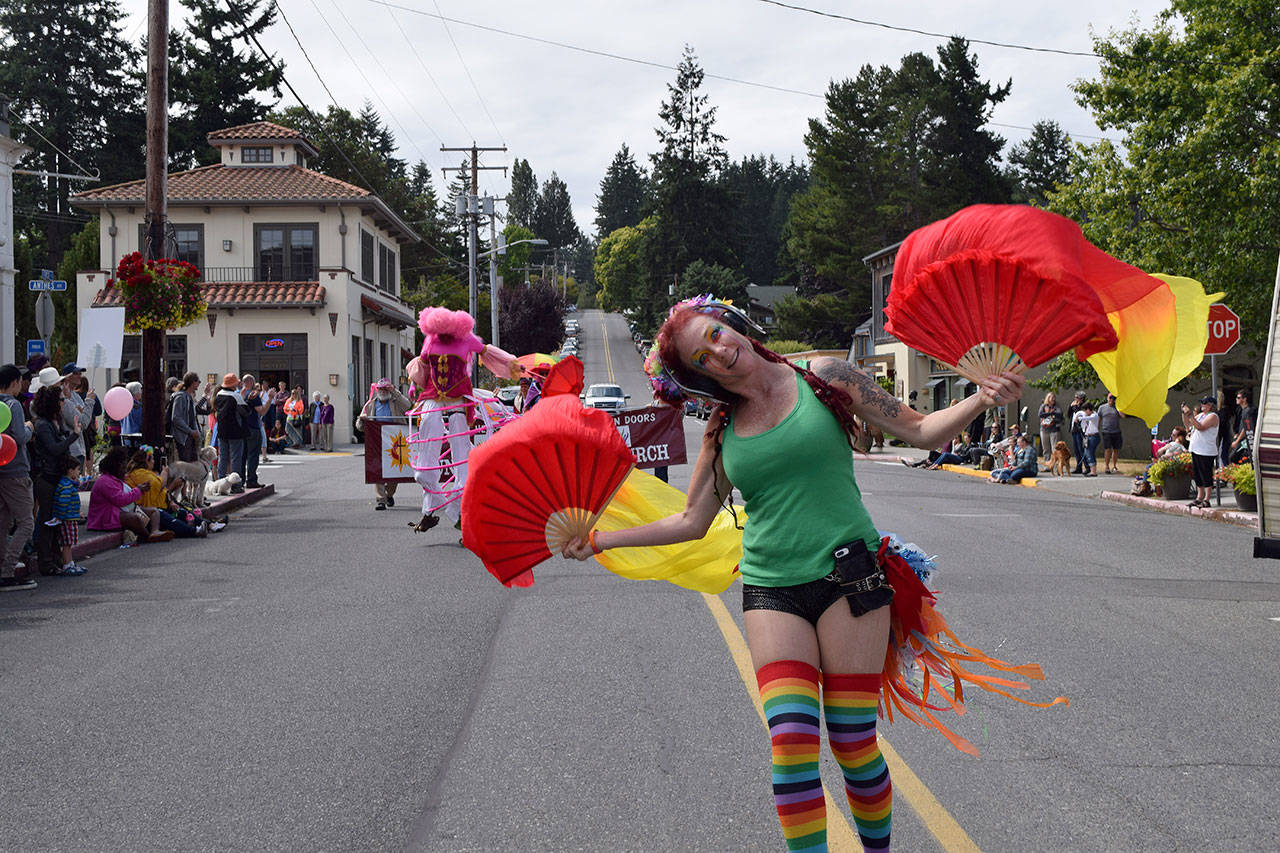Smiles were plentiful in Langley on Sunday as a diverse and colorful collection of people marched through town.
People young and old circled around downtown Langley as part of the fourth annual Queer Pride Parade on Whidbey, holding rainbow flags and messages promoting love to a celebratory crowd of onlookers.
For those involved in the parade, participants were represented by a plethora of groups and identities, much to their delight.
“I couldn’t tell who was gay, straight, queer or trans,” Port Townsend resident Jason Serinus said. “It was great to see. It was fun and the energy was really positive.”
This year’s parade saw 24 organizations represented in the march across town, ranging from theater organizations to church groups. The groups followed the tracks of grand marshal Pandora Violet Phoenix, the owner of a successful Oak Harbor seamstress business and a leading figure in the city’s goth scene. Dressed in purple on top of her hearse, Phoenix set a positive tone by waving to bystanders and routinely making remarks on people’s outfits as she led the parade.
A boat carrying the parade’s “royal family” marked the end of the demonstration. The royal family, consisting of three members from Whidbey’s LGBTQ (lesbian, queer, bisexual, transexual and queer) community nominated by their peers, consisted of Whidbey residents Annie Dee Saltee, Whidbey Children’s Theater Artistic Director Kathryn Lynn Morgen and Trish Rose, who was dressed in her U.S. Air Force uniform — she’s retired from active duty as a major general.
Organizer Skye Newkirk said there wasn’t much pushback during this year’s festivities, which came as a bit of a surprise to him. He heard about there possibly being protesters at the parade, yet Langley’s streets were only filled with support.
“We did hear some whispers of there being protesters this year, which we haven’t encountered,” Newkirk said. “Nobody showed up to do that, but as we grow bigger, we open the door to that sort of push back.”
The amount of positivity is what stood out to Serinus. As someone who was part of the original New York City Pride Parade in 1970, he’s seen first-hand how much the atmosphere around such parades has changed. Back then, he says there “definitely wasn’t” any straight people actively participating, compared to these days when straight “allies” walk by the LGBTQ community’s side in a show of support.
For grand marshal Phoenix, that positivity is crucial to let those who live “alternative lifestyles” know they’re not alone on Whidbey Island. She says there are “a lot of us on the island” who don’t live conforming lifestyles, and without shows of inclusion, such as the pride parade on the island, some can feel trapped or not accepted.
That’s why she says it’s important for smaller, more rural areas to have their own inclusive parades. Without one on the island, she says those who wouldn’t be able to make it to Seattle Pride might feel stuck. She wants those who feel that way to know they’re not alone.
“It’s important to have these kind of events in smaller areas for several reasons,” Phoenix said. “We can often feel we have nowhere to go. Without knowing there are people out there like us, you might have young queer people who never dress or present themselves the way that really represents them, and that’s not right. We must love ourselves for who we are.”


